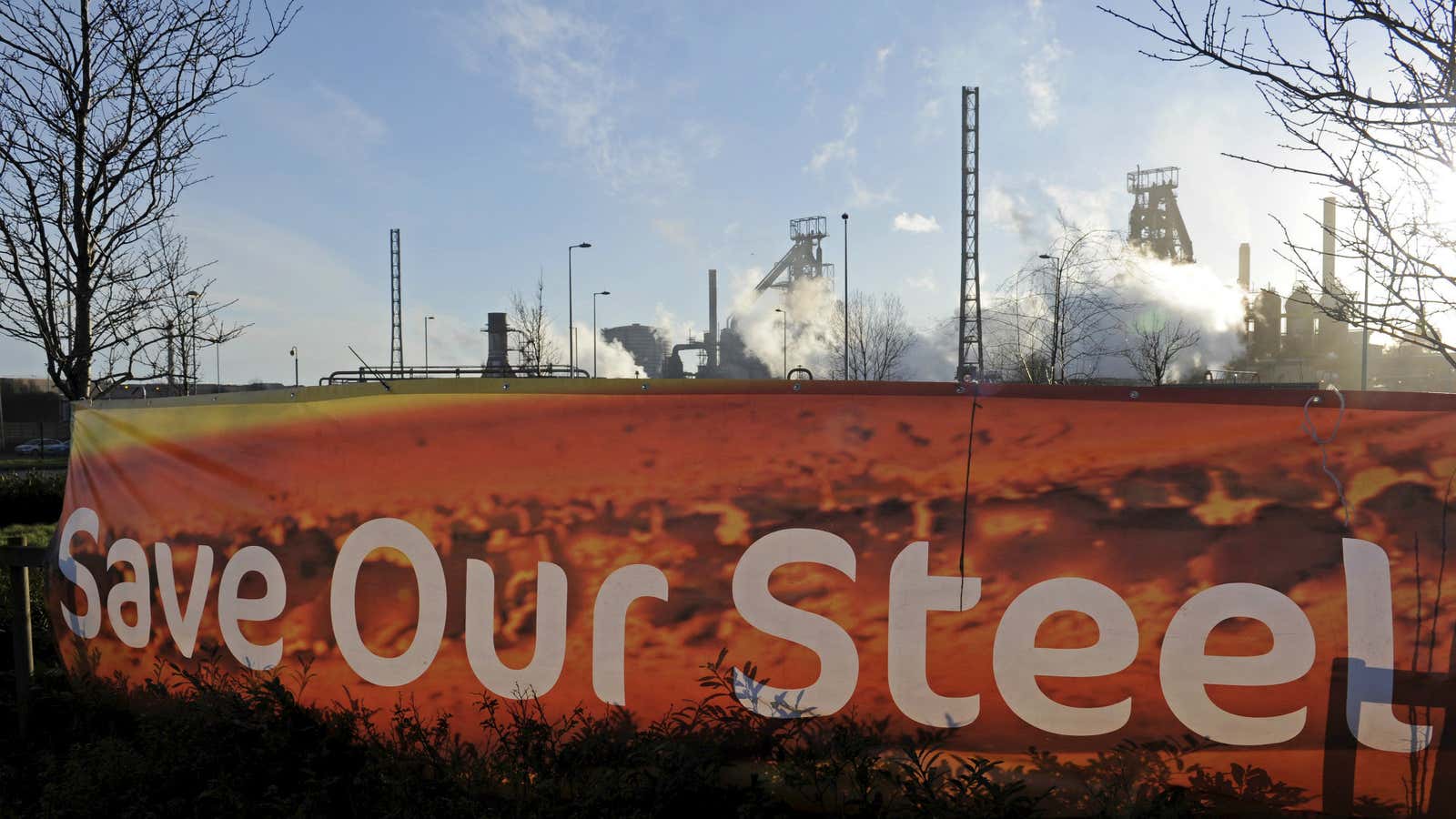Tata Steel put its British business up for sale this week, and it’s not an easy pitch. If the Indian conglomerate can’t find a buyer for the operations, which it acquired as part of a $12 billion deal in 2007, it could shutter the plants, putting 15,000 jobs at risk.
Following its ill-timed acquisition, Tata’s British steel operations have recorded a loss in six of the past eight fiscal years. Over this time, the company has written down the value of its UK business—by far the country’s largest steel producer—by some £2 billion ($2.9 billion). The operations are now worth next to nothing, according to Tata’s finance director.
About the only thing that has been growing at the company is the size of its enormous pension fund, which owes around £14 billion to more than 130,000 members. Like other old-line industrial giants struggling to remain competitive in global markets, the generosity of benefits offered to former workers now represents a significant liability, both literally and figuratively, to the company’s survival. Tata has gradually plugged a deficit in the fund, which was once a gaping £2 billion but is now down to £485 million (pdf), but it could take another £2 billion to make sure it pays out what was promised (paywall).
So who might be interested in buying into British steel? Prime minister David Cameron has ruled out nationalization, offering “no guarantees” of saving jobs. Tata is already in the process of selling plants in Scotland and a specialty-products division in the north of England. It will consider offers for the rest of its operations “in whole or in parts.”
The prospects for potential buyers aren’t great. Britain now imports more steel than it produces. And no wonder—labor costs for steel works in Britain can be 20 times as expensive as in China (paywall). Despite falling prices and a glut of global capacity, Chinese steel producers continue to ramp up production even as they announce major layoffs.
In this environment, British steel companies—which account for less than 1% of global production—aren’t equipped to compete at scale. Indeed, Tata has cut some 10,000 jobs in the UK during its time as an operator in the country. Rivals like SSI and Caparo have cut 4,000 workers over the past six months.
Although the government is resisting a full-blown bailout, it may need to provide incentives to entice private buyers for all or parts of Tata’s ailing operations. It could also be asked to do something about the group’s daunting pension liabilities. The sun has been setting on Britain’s 165-year-old steel industry for some time, but this week things got considerably darker.
